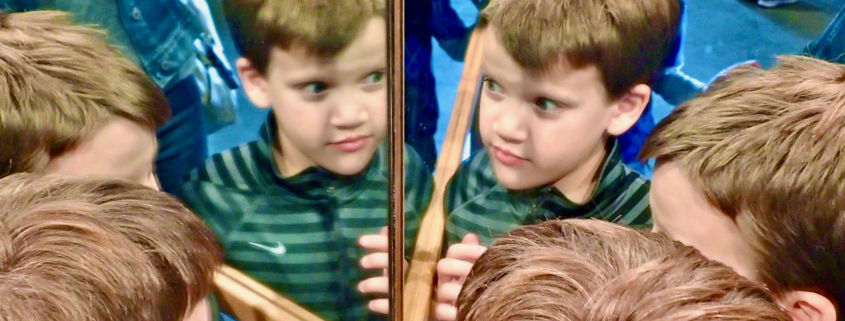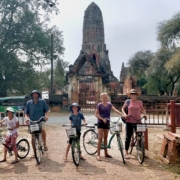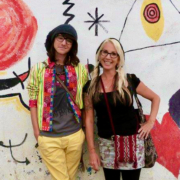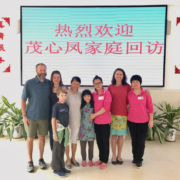AI and Worldschool Education
This blog contains ideas and early thoughts on how Artificial Intelligence (AI) might influence worldschooling. In June, I wrote about Hot Topics in Educational Theory that looked at current educational trends and how they might intersect with worldschool education. This hot topic deserved its own post. Aside from being an author of Wonder Year and a promoter of all things worldschooling, I also wear the hat of Composition and Rhetoric Instructor at our local Front Range Community College. You might imagine that the advent of ChatGPT and AI in education are topics we are talking about and freaking out about. I’ve attended my fair share of webinars and conversations at the water cooler.
My initial reaction to Chat GPT was a wholehearted, “heck no!” But the more I talk with friends and my kids, the more I am trying to keep an open mind. My dad, a former engineering professor, says it feels like humans are at a similar crossroads that we faced with the introduction of the calculator. When that happened, math instructors thought it would be the downfall of math education–many had the hyperbolic notion that it was the undoing of society–but perhaps it’s opened us up to higher math concepts rather than rote calculations. Somehow ChatGPT feels bigger, more a crisis of humanity, but maybe it’ll just pass over us as easily as the calculator and our adapted educational model will happen organically and meaningfully.
Early takeaways for how AI might affect your worldschooling education
Acceptable Use
AI is not the same thing as ChatGPT. AI is already in use with grammar checks, spell checks, and citation generators, making the question: where do we draw the line in acceptable use? And what do we consider plagiarism? We need clear policies in our online classes and in-person instruction and a mutual understanding with our more informal worldschooled kids. You and your older kids, ones who are very adept with the internet, need ground rules of what is acceptable. Can they use AI to write a paper, research your next destination or create a citation? The rub might come if you are each making assumptions about what is okay. Legally you do not need to cite ChatGPT as a source, but that doesn’t mean that at your worldschooling table you agree. So, come up with your own agreements.
As we puzzle through these questions, kids in classrooms now are finding what is acceptable and how to use AI as a tool. If you plan to return to traditional classrooms soon, make sure you take time to learn the new rules. For example, instructors use AI to find AI. Turnitin is the plagiarism and AI spotter most commonly used in our area’s schools. Individuals can also pay for Grammarly, GrammarlyGO (just out), or Chegg. Anything in direct quotations or a bibliographic citation will show up with these applications; anything else is plagiarized. These applications should also pick up anything written by Chat GPT. Last spring, my fellow faculty each found 3-5 papers written by Chat GPT. I warned my students about the detectors and found none. Learning to write by yourself is not a skill that will be thrown out any time soon.
If your worldschooled child is young, you might be thinking these concepts and ramifications are very far removed. But what seems to be happening is that kids just learning to write or do research have so much information at their fingertips that they begin to write by cutting and pasting other people’s work. A good writing exercise for middle schoolers is to read something and practice both summarizing and paraphrasing skills.
A New Tool to Master
Just like the calculator and spell check, AI is a tool. The more we expand our understanding of its benefits, the more we can use it to focus on critical thinking. How do we use it for an educational advantage? For many of us, we are using AI to begin a writing project. We might feed in a question, see the results, incorporate some of the ideas by paraphrasing, and use it as a springboard for more searches and research. Many of my students say they use it to brainstorm, then hide it from sight to put concepts into their own words, find creative threads and metaphors, and put their humanity into their writing. As I am playing around with its use, I do notice that AI does not write, think, and research with an inclusive and social justice lens.
And for parents, did you know that AI can also grade papers (?!?!), generate tests, and create active learning modules? I am not insinuating that robotic feedback can replace a mom’s golden touch, but it can be one more read, needless to say a more objective one, that can add perspective to a piece of writing. Especially if your kids are young, I would filter any AI feedback before letting them see it. Nolej is just one company that creates e-learning curricula and is behind a paywall. I am super curious about the quality, and I think many similar companies are not far behind. In essence, these would do everything that IXL or Oak Meadow would do, but it’s created by AI and would be cheaper and potentially more individualized. If this is something you’re curious about, let me know how it goes.
AI Can Heighten What Makes Us Human
Many educators feel that any use of AI is an egregious insult to education and that its users are breaking the academic code. If they find any use, the students get an F. I do understand their thinking. But I think the genie is out of the bottle. I’m staying awake at night trying to prepare my three kids and my college students for a post-AI world. After learning basic writing skills, students should learn all the ways to insert humanity into their written work. I want to create more personal reflections, opinion pieces, reviews, and narrative nonfiction assignments. As worldschoolers, think about how these types of writing projects might be included for your kids. We can focus on more human-centered writing. I believe the lines between creative nonfiction and “academic” nonfiction will be the focus of writing instruction courses in 10 years.
The college-level assignment I’m currently conjuring is: write an essay about ____. Ask Chat GPT and GrammarlyGO to write on the same prompt. Then compare and contrast and write a position paper on the use of AI in writing. For middle schoolers, you might compare a paragraph, for highschoolers a five paragraph essay or a five page research paper. Again, let’s share the outcomes. We all benefit from this open and honest exploration.
And “exploration” is the word that keeps coming to my mind as I write this. Time in front of our screens wondering what the robot will come up with is time away from the exploration of a creekbed or wondering at the colors nature has given us for this evening’s sunset. We know that kids (and adults) thrive in nature emotionally and physically and that high screen time can be one of the factors plaguing our mental health. As worldschoolers, you are giving yourselves and your children more exposure to nature to foster creativity and hone the skills for a post-AI world. The optimist in me wonders if rote pieces of writing can now be done in little time; maybe, like the calculator, it will free us up for more time for higher order thinking. And more time for all of us to watch the sun set.
How do you see AI changing the writing instruction of the future? Will it change the way you guide your worldschooling?













